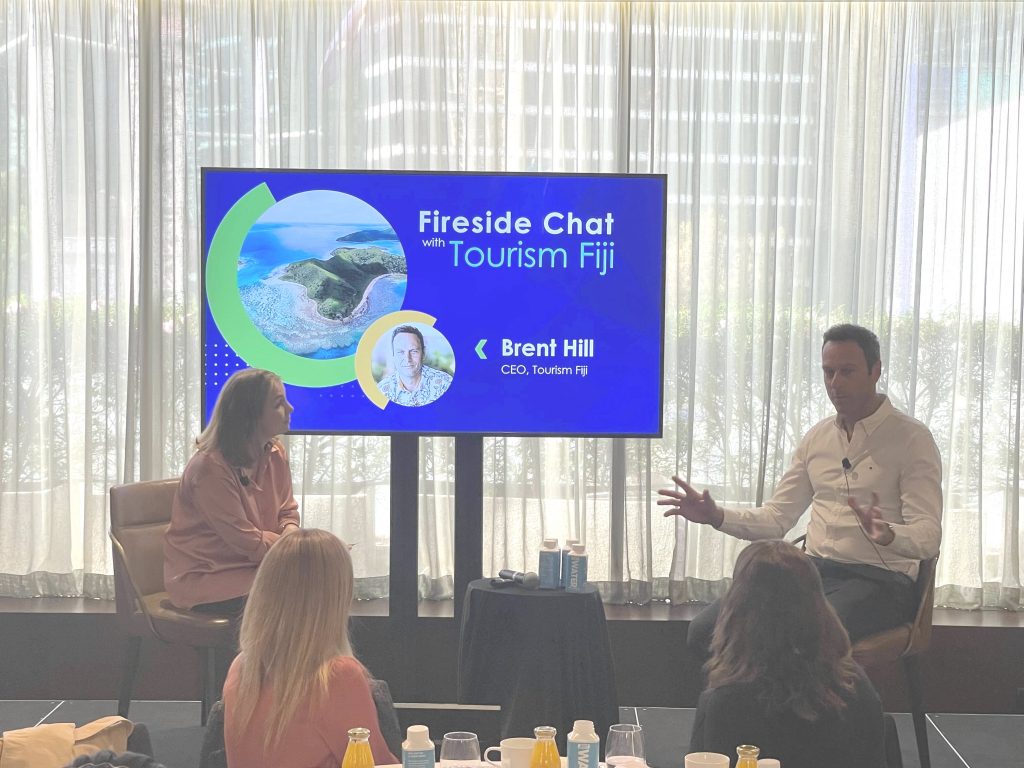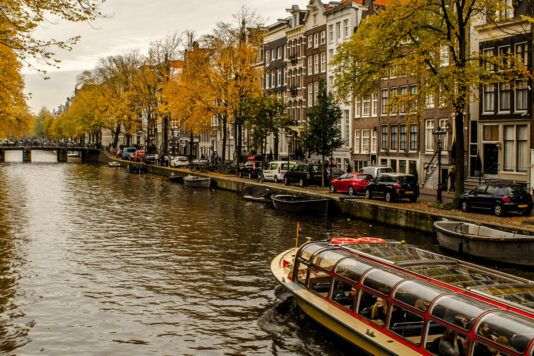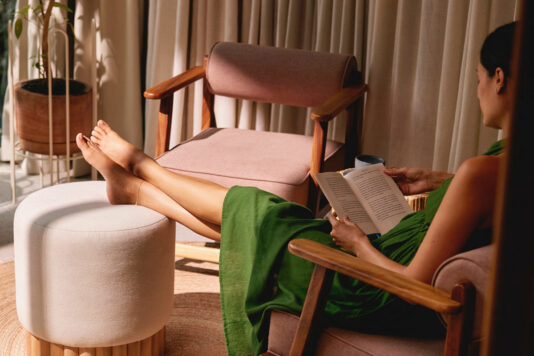July 6, 2022
For more than 20 years, we’ve been connecting advertisers with travel audiences across Expedia Group brands. We work with thousands of advertisers around the world and across multiple verticals to help them find success. Our partners include hotels, airlines, and destination marketing organizations like Tourism Fiji. We recently had the pleasure of chatting with Tourism Fiji CEO, Brent Hill, at our Insights Summit in Sydney. In this Q&A, find out how Fiji is welcoming back travelers, how they’re prioritizing sustainability, and what it’s like to experience Fijian culture and hospitality.
What was one of your biggest learnings navigating the pandemic?
We definitely learned that teamwork combined with decisive action gets results. We often had to quickly come together, talk through the issues, make a decision, and then execute. There were so many moving parts and so many things to work through, that we needed to ensure we had the key people come together (in person or online) to make the calls, work through ramifications, and sense check, and then go ahead and act on the decision.
Can you tell us about your Open for Happiness campaign and the primary goals you aimed to achieve with the campaign? What role, if any, did data play in the development of the campaign?
Open for Happiness was all about PR, as well as marketing. In April 2021 we were referred to (unfairly) as the COVID capital of the world, as we grappled with the Delta variant. Upon joining Tourism Fiji, it was obvious to me that first, increasing vaccination rates was our pathway out, and second, we had to communicate our levels of vaccination and the single-minded focus of reopening on December 1. Then with Open for Happiness, we brought in Rebel Wilson to ensure we had an ad that would get noticed worldwide, on a relatively modest budget. She resonates so well across the world, and we got enormous coverage across the U.S., Australia, New Zealand, and the UK, especially. To date, we’ve had 29 million views. Data and research helped inform our message – which was very simple and effective – our core brand truth around happiness was still there, and we were open. Rebel simply then had to tell the story of how good it was to come to Fiji, and be immersed in our culture, people, and beautiful paradise!
What type of traveler response have you seen since reopening to international visitors at the end of 2021?
It’s been incredible. We initially thought we would be able to open quarantine-free to just the U.S., but Australia very quickly changed its protocols so we opened with the U.S. and Australia. Then finally New Zealand joined in March, so we’ve had those three. Other markets globally are open, such as Europe, but connections through ports like Singapore and Hong Kong either remain closed or restricted, so arrivals from those countries are still low. Those who have come – I salute them, especially those who were brave enough to come in December right from kickoff! We initially saw couples visiting, but now families are coming, too. First-timers are visiting, too, which is really exciting.
In our research, we talk a lot about sustainability and how important that is for travelers. How are you including that in your marketing efforts, and what’s your long-term vision around that?
It’s incredibly important. We’ve all got to play our role. We understand sustainability from a Tourism Fiji perspective is very much around how we invite the tourists into sustainability. The big thing for me is, how does the tourist know what we’re doing in Fiji and then how do they get involved? We’re rolling out things like adopting manta rays and turtle conservation, mangrove replanting – things that are really hands-on for tourists. And we don’t want to just invite tourists to clean up beaches and pick up plastic without having some form of progress that they can actually play a role in, and that leaves legacy.
Because unfortunately, if you just go and clean up trash, it’s still going to be there. Next time needs to be a little bit more substantive. It has to be really genuine. The key thing we’ve found is some brands don’t want to go down the path of sustainability for fear of people saying, “You’re not doing enough. You’re greenwashing.” So, we’re being gentle about it, saying, “We’re on a journey. Come with us. It’s not perfect when you come to Fiji. But you can help us recover from that and get to a better future.”
How do you find the balance between promoting your destination and those cultural heritage sites, as well as preserving them?
It’s interesting because there are parts of Fiji that are really comfortable with development. In the general area in Nadi near where I live, there are a lot of hotels, a lot of development, and that provides a specific experience. We want to preserve the other areas and integrate. As new resorts are being built, we’re trying to ensure their size is right and trying to integrate them into the environment as much as possible. If people are adventurous enough to go to a place in Savusavu, which is a 40-minute plane ride, it’s like going back in time, because there’s nothing there apart from just villages, amazing water, palm trees. We want to preserve those elements.

Tell us a little bit about Care Fiji Commitment, and how has that supported your recovery and reopening efforts?
This was really critical to our success. It was a program that our industry wholeheartedly embraced. It gave tourists reassurance that we had put in place safety measures but also allowed quarantine-free freedoms and gave travelers peace of mind that they were protected. They were sensible measures – in line with data and science – and we also ensured that businesses could not open without achieving one of the three approval levels, depending on their business. It was a key marketing tool. This was about two Strategic Objectives we called “Readiness” and “Sprint to December.”
What’s Fiji culture like?
One of the key experiences of coming to Fiji is experiencing Fijians. They’re some of the happiest people on the planet and amazing people to work with, and they showcase a living culture. I come from Australia, which has been a journey back to rediscover and understand the true indigenous culture of Australia. But going across to Fiji, there’s very much a living culture all around you.
Singing, dancing and laughter are part of the culture. That’s life. That’s how Fiji works. It’s a beautiful thing. My job is not to simply impress Western experience on the team, and it’s actually a bit of give and take from both. In Fiji, it’s genuine. I strongly recommend that when you visit Fiji, go into a village and experience it. It’s quite surreal. I went on a tour once, and was on a remote, random beach, taking a photo of a beautiful house, and a gentleman walked out. Being Australian, I thought, “Oh, I’m trespassing, he’s going to ask me to leave, impolitely.” But of course, he’s like, “‘Come in, come in. Let’s have food.’” That’s the wonderful, welcoming culture of Fiji.
You mentioned earlier your partnership with Fiji Airways. How has the role of “partnership” in your marketing efforts evolved over time?
I think the journey we were on pre-pandemic was really pushing into the digital space. Through the pandemic we’ve seen the re-emergence of traditional agencies. I think people are now looking for their partners to provide the expertise and flexibility. Travelers want to feel supported. They don’t want to pay upfront without some sort of guarantee in place. The role of the partner has grown, and that’s been a real key to our success, such as with Fiji Airways. What Expedia Group can do is provide the detail about the destination and I think people really trust that more than ever. Our partnerships are just incredibly valuable.
Looking ahead, what are you most excited about?
As the weather gets cooler elsewhere, people look to Fiji more, where it’s still warm. I’m very excited about people coming to Fiji. There are still several markets that aren’t open, particularly in Asia, so we’re looking to target different markets compared to 2019. Europe is slowly coming back. Nevertheless, we are still doing quite well, even with very few markets open.
As for our properties, most of them are open. We’ve got a few openings soon, plus a few big renovations that will open later in the year.
I’m also excited about the growing Tourism Fiji team. We’ve had to build from the ground up and we’re recruiting a lot of new talent at the moment. We are growing quickly. As Fiji continues recovering, we’re getting people back to work doing what they love best.
You live in one of the most amazing, beautiful destinations in the world. What is on your bucket list?
First, we have arguably some of the most exclusive, luxurious properties in the southern hemisphere, like Laucala Island, which is kind of this enigma accessible to a few, but I do hope to be able to go there later this year just to see it in person. And another is a place called Wakaya. Fiji does luxury like nowhere else in the world and it’s awesome. The amazing thing about it is the staff are very professional but still themselves. You may visit a beautiful, luxurious resort that costs thousands of dollars per night. But the Fijian staff are just the same and they will still make you cry at the end when you leave with their songs. That’s what I’m hoping to go and see: Laucala and Wakaya. I’m sure they will blow me away.
To learn more about the Care Fiji commitment and how it helped Fiji Airways welcome travelers back, read our blog post about it. You can also subscribe to our blog to stay tuned for more partner features.




